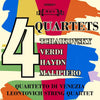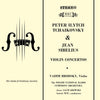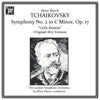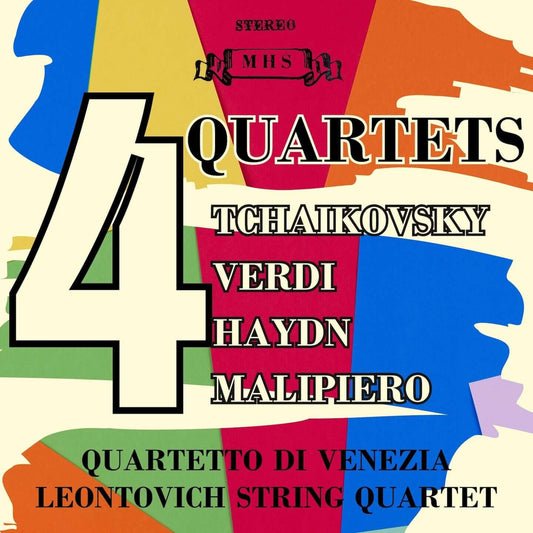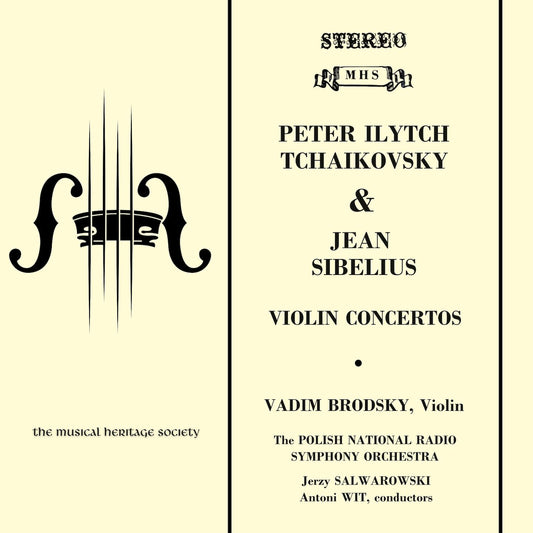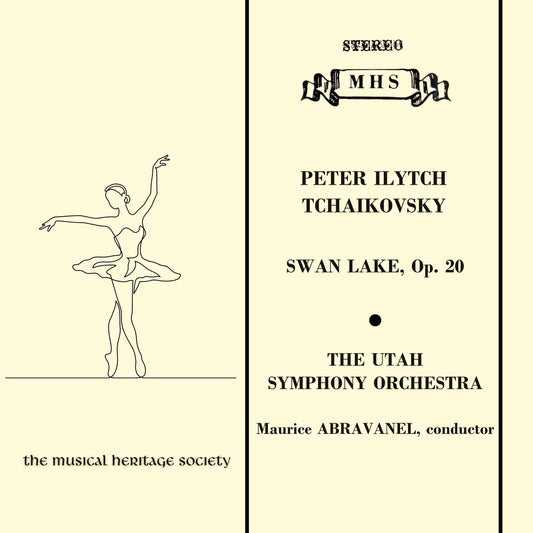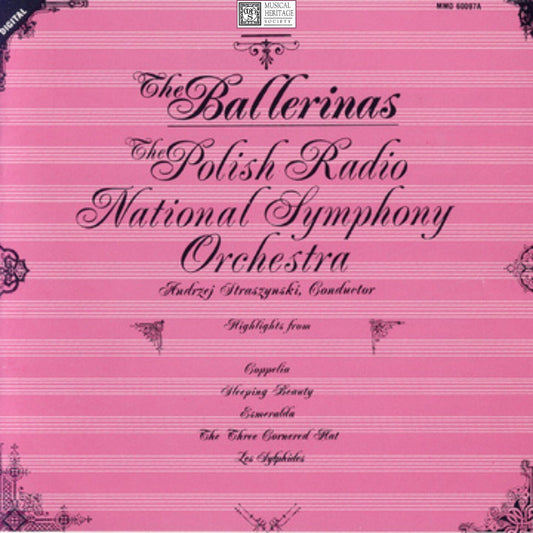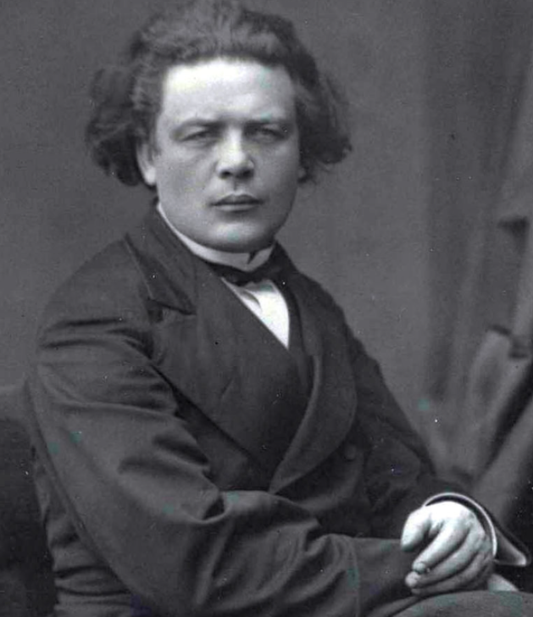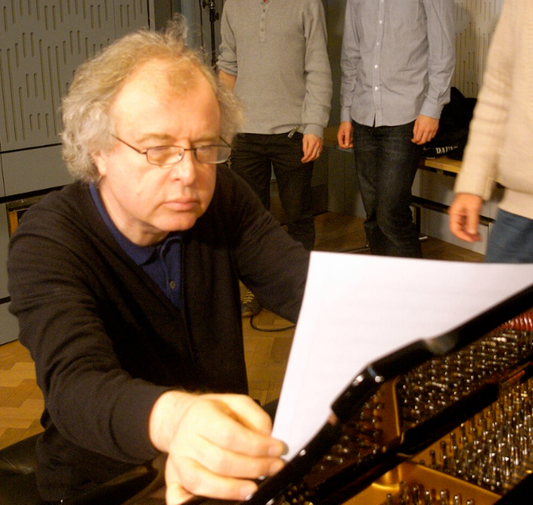Collection: PYOTR ILYICH TCHAIKOVSKY (1840 – 1893)
Pyotr Ilyich Tchaikovsky (May 7, 1840 – November 6, 1893) remains one of the most beloved and frequently performed composers of the Romantic era, a Russian master whose music speaks with unparalleled emotional directness, melodic richness, and orchestral brilliance. While deeply rooted in the Western European musical tradition, Tchaikovsky infused his work with a distinctly Russian sensibility, creating symphonies, ballets, concertos, and operas that continue to captivate audiences worldwide with their passionate intensity and unforgettable tunes.
Born in Votkinsk, a small town in the Russian Empire, Tchaikovsky initially pursued a career quite removed from music. His family, while cultured, did not envision a musical path for him, and he was educated for a career as a civil servant. He graduated from the Imperial School of Jurisprudence in Saint Petersburg in 1859 and took up a bureaucratic post. However, his passion for music, nurtured from childhood piano lessons, intensified. In 1862, he made the pivotal decision to abandon his civil service career and enroll as one of the first students at the newly founded Saint Petersburg Conservatory, studying composition with Anton Rubinstein.
Upon graduating in 1865, Tchaikovsky was appointed professor of harmony at the Moscow Conservatory, established by Anton Rubinstein's brother, Nikolai. This period saw the composition of his first significant works, including his Symphony No. 1 ("Winter Daydreams," 1866) and the fantasy overture Romeo and Juliet (1869, later revised), which already displayed his gift for sweeping melodies and dramatic orchestration. Despite his teaching duties, he struggled financially and emotionally, grappling with insecurities about his work and intense personal turmoil related to his suppressed homosexuality.
A crucial turning point came in 1877 with the beginning of an extraordinary relationship with Nadezhda von Meck, a wealthy widow and ardent admirer of his music. They agreed to become patron and composer, corresponding prolifically and intimately for 13 years, yet, by mutual agreement, they never met in person. Her generous financial support freed Tchaikovsky from teaching duties, allowing him to dedicate himself entirely to composition and travel extensively. This period coincided, however, with a disastrous personal crisis: Tchaikovsky's brief, ill-fated marriage in 1877 to Antonina Miliukova, a former student. The marriage, likely an attempt to quell societal rumors and his own internal conflicts, collapsed within weeks, leading to Tchaikovsky suffering a severe nervous breakdown and fleeing abroad.
The emotional turmoil of this period, combined with the security provided by von Meck, fueled an intensely creative phase. He completed his Symphony No. 4 (1878), dedicated to von Meck, which explicitly deals with themes of Fate and struggle. The opera Eugene Onegin (1879), based on Pushkin's novel, and the Violin Concerto (1878) also emerged during this time, showcasing his mastery of vocal writing and instrumental virtuosity, respectively.
The 1880s saw Tchaikovsky's fame grow internationally. He traveled widely, conducting his own works across Europe and even to the United States (for the opening of Carnegie Hall in 1891). His output remained prolific, including the popular 1812 Overture (1880, a commission he personally disliked), the Serenade for Strings (1880), the Capriccio Italien (1880), and the Manfred Symphony (1885). Symphony No. 5 (1888), with its recurring "fate" motif, continued his exploration of cyclical symphonic form. This decade also produced two of his three iconic ballets, composed in collaboration with choreographer Marius Petipa: The Sleeping Beauty (1890) and The Nutcracker (1892). His first ballet, Swan Lake (1877), initially less successful, would later achieve immense popularity.
In 1890, Nadezhda von Meck abruptly terminated their correspondence and financial support, citing bankruptcy (though the exact reasons remain debated), which deeply wounded Tchaikovsky. His final years, however, saw the creation of some of his most profound work, culminating in the Symphony No. 6 in B minor, subtitled "Pathétique" (1893). Premiered just nine days before his death, this intensely emotional and structurally innovative symphony, ending with a slow, despairing movement, is often interpreted as a premonition or even a musical suicide note.
Pyotr Ilyich Tchaikovsky died suddenly in Saint Petersburg on November 6, 1893, at the age of 53. The official cause was cholera, but speculation has persisted for over a century regarding other possibilities, including suicide (possibly forced by a "court of honor" over a homosexual scandal). Regardless of the circumstances of his death, Tchaikovsky left an indelible legacy as a composer whose music powerfully articulates the heights of joy, the depths of despair, and the full spectrum of human emotion with enduring melodic beauty and orchestral mastery.

